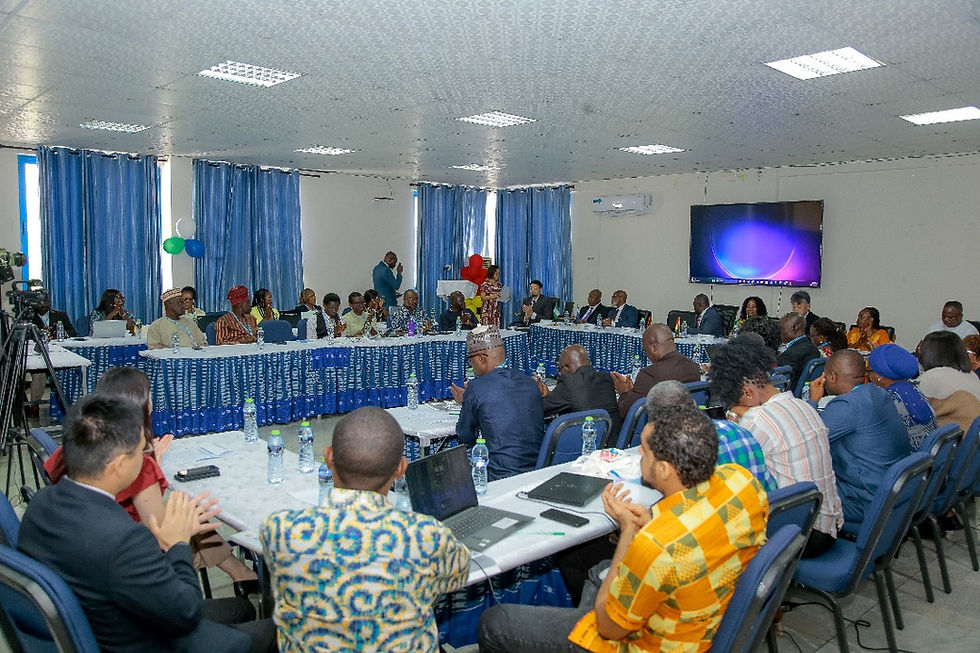Vivendi's Canal+ eyes MultiChoice takeover; what it means for Africa's pay-tv market
- Think News Online

- Jun 11, 2024
- 2 min read

In a significant development for the African pay-TV landscape, MultiChoice, Africa’s largest pay-TV operator, has recommended that its shareholders accept a $2.9 billion buyout offer from French media conglomerate Canal+.
If the acquisition proceeds, Canal+ will gain control over DSTV, Showmax, GoTV, and several key sports broadcasting licenses in Africa.
This move is set to reshape the continent's paid TV industry.
Who are Vivendi and Canal+?
Vivendi, a Paris-based mass media and communications company, owns Canal+, the entity bidding for MultiChoice.
Vivendi is controlled by the Bolloré family, a wealthy French dynasty with substantial interests in ports, logistics, and shipping.
The family has expanded its empire into media, with Canal+ generating approximately €9.6 billion in revenue—roughly 3.2 times larger than MultiChoice.
While Vivendi might be a new name to some, it has been active in Africa for some time.
In French-speaking Africa, Canal+ commands a strong presence with 7.6 million subscribers.
This figure, although impressive, pales in comparison to MultiChoice's 22 million subscribers spread across the continent, predominantly in English-speaking regions.
The Strategic Appeal of MultiChoice
Vivendi's pursuit of MultiChoice aligns with its strategic focus on internationalisation.
Facing limited growth opportunities in its home market and across Europe, Vivendi is seeking to expand its footprint in high-growth regions like Africa.
MultiChoice presents a valuable opportunity due to its extensive subscriber base and market penetration.
Africa's burgeoning population and increasing demand for digital entertainment make it an attractive market for Vivendi.
By acquiring MultiChoice, Vivendi aims to dominate the pay-TV sector on the continent.
Additionally, MultiChoice's falling stock price and the depreciation of the South African rand have made the acquisition more financially appealing.
Challenges and Regulatory Hurdles
Despite the potential benefits, the deal faces significant challenges.
South African law limits foreign ownership in local broadcasters, capping it at 20 percent of voting rights.
This regulation necessitates a careful structuring of the deal to comply with local laws while maintaining the required level of black shareholding under South Africa's empowerment rules.
Canal+ has expressed its commitment to preserving MultiChoice’s black ownership credentials, a crucial factor in navigating the regulatory landscape.
Furthermore, Vivendi must address the perception of French companies as neo-colonial entities in Africa.
Statements like Vivendi's ambition to spread European culture could be sensitive and may require careful handling to avoid backlash.
Potential Impact on Viewers
In the short term, viewers are unlikely to experience immediate changes in their pay-TV services.
The acquisition's complexity means that any significant shifts in operations or content offerings will take time to materialize.
However, over the long term, the merger could lead to enhanced content diversity and improved services, leveraging Vivendi’s resources and expertise.
The Road Ahead
The proposed acquisition is still in its early stages, with several hurdles to overcome before it can be finalized.
For MultiChoice’s management, this period will be challenging as they navigate regulatory requirements and stakeholder expectations.
The deal’s success could hinge on Vivendi's ability to address these complexities and reassure stakeholders of the benefits of the merger.
For Africa’s pay-TV market, the acquisition represents a potential transformation.
If successful, Vivendi's control over MultiChoice could lead to a more integrated and expansive media landscape across the continent, reflecting broader global trends of consolidation in the media industry.
Story by: Joshua Kwabena Smith








Comments